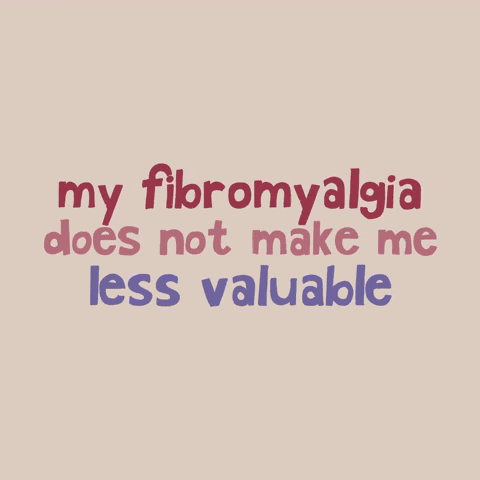- Lincs Injury's Round Up
- Posts
- Struggling with Chronic Pain? Learn How to Manage Fibromyalgia Effectively
Struggling with Chronic Pain? Learn How to Manage Fibromyalgia Effectively
We’re unpacking Fibromyalgia, a condition affecting millions but often misunderstood

If you’ve been struggling with unexplained chronic pain, fatigue, or brain fog, this article might shine a light on what’s going on.
What Exactly is Fibromyalgia? 🤔
Fibromyalgia is a chronic condition affecting how your brain and spinal cord process pain signals. It’s often marked by widespread pain and heightened sensitivity to touch. This condition won’t cause physical damage, but it can lead to constant discomfort and fatigue.
People with fibromyalgia experience what is known as "abnormal pain perception," which means the brain processes pain signals more intensely. Because of this, daily activities can become exhausting.

Key Symptoms of Fibromyalgia 📝
If these symptoms sound familiar, fibromyalgia could be the culprit:
Widespread pain: Persistent discomfort felt throughout the body, especially in muscles and soft tissues.
Fatigue: An unrelenting tiredness that no amount of sleep seems to fix.
Brain fog ('fibro fog'): Trouble focusing, remembering, or thinking clearly.
Sleep disturbances: Difficulty staying asleep or waking up feeling unrested.
Stiffness: Feeling sore and tight, especially in the morning.
Sensitivity to touch: Even light contact can feel uncomfortable or painful.
How is Fibromyalgia Diagnosed? 🩺
Getting a diagnosis for fibromyalgia can be tricky. There’s no definitive test, so diagnosis relies heavily on identifying symptoms that have persisted for more than three months.
Doctors typically look for:
Widespread pain that affects both sides of the body, above and below the waist.
Tender points: Areas of the body that hurt when pressed lightly.
A combination of other symptoms such as fatigue and cognitive issues.
Ruling out other conditions through blood tests or imaging scans helps narrow down the diagnosis.
What Causes Fibromyalgia? 🧠
The exact cause isn’t fully understood, but research suggests several contributing factors:
Genetics: Family history may play a role.
Infections: Certain illnesses may trigger or worsen fibromyalgia symptoms.
Physical or emotional trauma: Accidents, injuries, or extreme stress can be linked to the onset of fibromyalgia.
Abnormal pain processing: The nervous system’s miscommunication amplifies pain signals.
Living with Fibromyalgia: Treatment Options 🛠️
While there’s no cure, there are ways to manage fibromyalgia and improve your quality of life. Here are some effective treatments:
Physical Therapy & Exercise
Staying active is key. Low-impact exercises like swimming, walking, and stretching can reduce pain and improve mobility.Massage Therapy
Regular massages can ease muscle tension and promote relaxation. At Lincs Injury, we recommend it as part of a comprehensive pain management strategy.Medication
Pain relievers, antidepressants, or anticonvulsants can help manage symptoms like pain and sleep problems.Cognitive Behavioural Therapy (CBT)
CBT is an excellent way to manage stress, develop coping strategies, and reduce the emotional toll of chronic pain.Lifestyle Adjustments
A healthy diet, proper sleep, and mindfulness practices like meditation can make a significant difference.Acupuncture
Many people find relief from fibromyalgia symptoms through acupuncture, an ancient technique aimed at restoring balance and reducing pain.
Why Early Intervention Matters ⏳
The sooner fibromyalgia is diagnosed, the better your chances of managing it effectively. Don’t wait until symptoms worsen. At Lincs Injury, our team can guide you through a personalised treatment plan to address your symptoms and improve your overall well-being.
Watch: Fibromyalgia 🎥
📣 Share this video with friends and family who might be experiencing similar symptoms, and let’s spread awareness.
Final Thoughts 💭
Living with fibromyalgia can be challenging, but with the right treatment and lifestyle adjustments, many people find relief.
If you suspect you might have fibromyalgia, don't hesitate to consult a healthcare professional.
We’re here at Lincs Injury to offer support every step of the way.
Lincs Injury Team x
P.S. If this article resonated with you, subscribe to our newsletter for more health tips and wellness content, delivered right to your inbox! We’re all about helping you move better and feel better, every day. 🧡
Hope you found this useful! 🌟

Reply